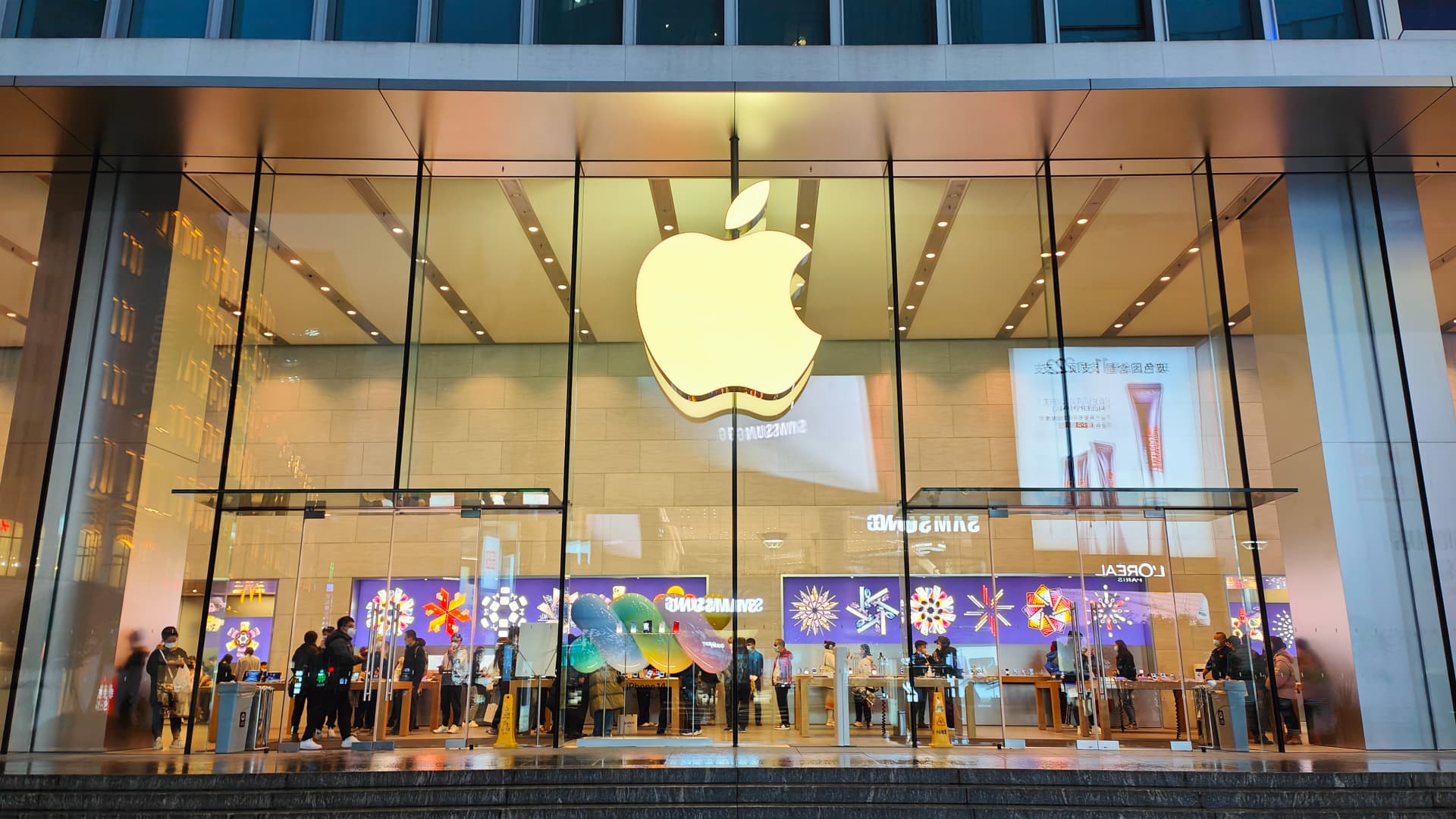
An Apple store on Nanjing Road Pedestrian Street in Shanghai, China, on December 16, 2022.
CFOTO | Future Publishing | Getty Images
One analyst maintains a bullish outlook on

An Apple store on Nanjing Road Pedestrian Street in Shanghai, China, on December 16, 2022.
CFOTO | Future Publishing | Getty Images
One analyst maintains a bullish outlook on
A headline risk is the risk that a company’s share price will decline from negative news coverage.
Apple shares fell to their lowest level since June 2021 as iPhone production is under threat from a widespread Covid outbreak in China after the country exited its zero-Covid policy.
The outbreak could potentially cause worker shortages at component plants or assembly factories across the country.
For the last two months, Apple has already been grappling with production shortages. In November, iPhone 14 production was hit by Covid-19 restrictions and labor protests at its primary iPhone 14 Pro and iPhone 14 Pro Max assembly plant in Zhengzhou, China.
Last week, a JPMorgan Chase analyst said that the supply shortfall should continue through the end of the year and weigh on the typical seasonal upshot in volumes. Apple had warned on Nov. 6 of a “significant disruption” ahead of the holiday season.
“While the rapid extension of lead times for the iPhone 14 Pro/Pro Max has slowed down and in fact began to moderate in recent weeks, it still remains elevated relative to the lead times seen prior to the COVID outbreak in Zhengzhou,” said Samik Chatterjee, in a note to investors.
“Ultimately, Apple is going to do everything they possibly can to defend their business as long as they can across different geographical regions,” said Zino.
He further added that the actual impact to the top line is going to be less than 1% in the U.S. and Europe.
Despite shortages, many analysts predicted that Apple customers will continue to be loyal to the brand’s products.
“We think a lot of the consumers out there are creatures of habit and won’t necessarily steer away from what they have done historically on Apple’s ecosystem,” said Zino.
In the interview, he also mentioned that Apple and Microsoft have held up despite headwinds in the tech sector.
“When you look at the names that have held up the best, two of them are Apple and Microsoft and that makes a lot of sense,” said Zino.
“Because from a multiple perspective, they are a lot more affordable than some of the other names out there and have the best free cash flow predictability.”